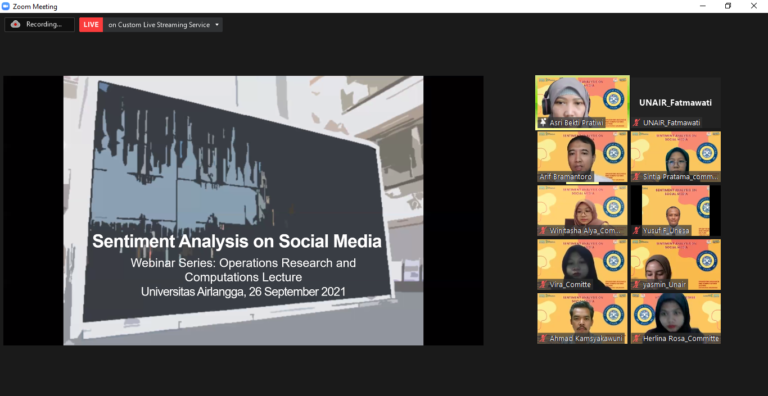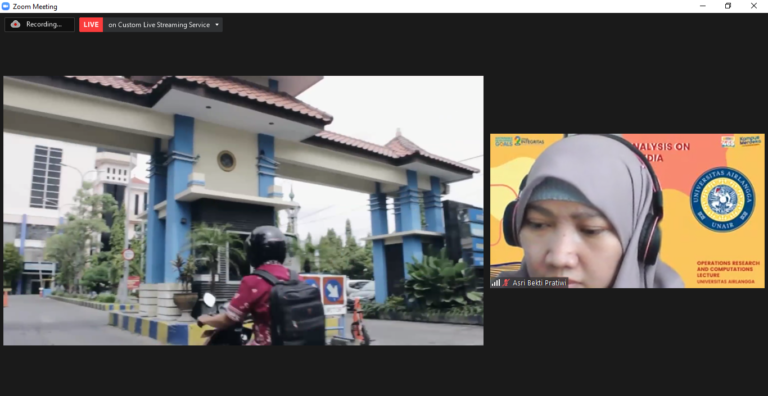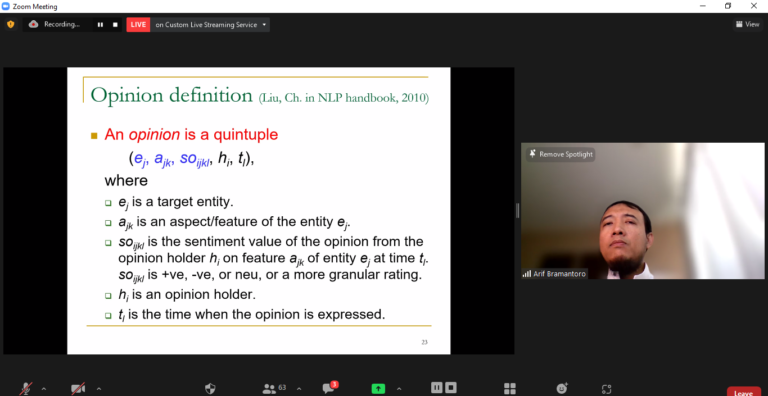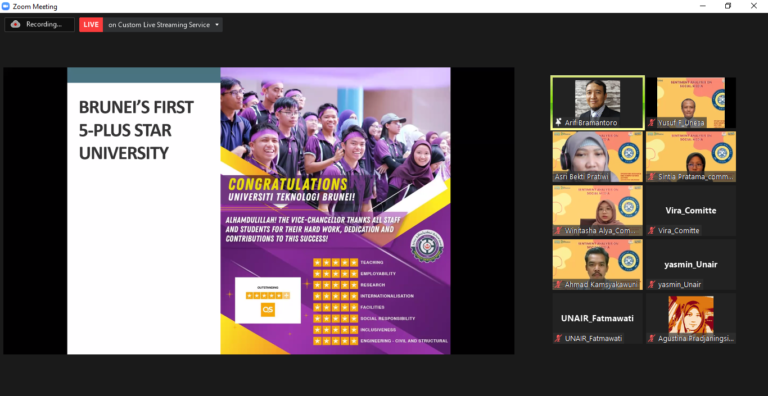For the second time, the Mathematics Study Program at UNAIR has participated in the viDEo COnverencing with universiTas Airlangga (Decota) event. Held on Sunday, September 26, 2020, the event was organized by the Operations Research and Computing expertise group. As the name suggests, this program was conducted online via Zoom and streamed live on the Matematika Unair Official YouTube channel. The event focused on the topic “Sentiment Analysis on Social Media” and featured a guest speaker from King Abdulaziz University, Assoc. Prof. Arif Bramantoro Soegihadi.


The event opened with remarks from the Vice Dean III of the Faculty of Science and Technology at UNAIR, Dr. Fatmawati, M.Si. This was followed by the presentation of the material by the guest speaker, moderated by Mrs. Asri Bekti Pratiwi, S.Si., M.Si., a lecturer in the Mathematics Study Program at UNAIR. The session began with an explanation of the importance of opinions or viewpoints on various matters. When making decisions, individuals often seek the perspectives of others. Companies typically conduct surveys before launching new products or programs. Nowadays, opinions or reactions to various subjects can be easily found on various social media platforms, such as websites, blogs, Facebook, Instagram, Twitter, and others. This accessibility greatly benefits those seeking the necessary information. However, these opinions cannot be taken at face value, as they are often subjective. Therefore, analysis and structure are needed to ensure the information obtained is valid and meets specific needs. This is where research known as sentiment analysis or opinion mining comes into play.


In his presentation, Mr. Arif explained that opinions can be constructed from five elements: the target entity (such as a person, product, event, etc.), aspects of the entity (attributes or parts of the entity), sentiment value of the opinion (positive, negative, or neutral), opinion holder (the person who holds the opinion), and the time the opinion was expressed. In sentiment analysis, it is crucial to consider the timing of an opinion because public opinion on a subject can change over time. Hence, knowing when an opinion was expressed is important to assess its relevance to the current situation.
Mr. Arif also expressed his hope that this guest lecture would attract more researchers to the field of opinion mining. One interesting question from a participant concerned the frequent use of slang and emoticons, which often lead to misinterpretations. The question was about how to maintain the relevance of sentiment analysis despite these challenges. In response, Mr. Arif stated that it is essential to gather all data, both textual and symbolic, when conducting analysis. Additionally, selection processes should be implemented to choose relevant opinions for use. This ensures that the results are genuinely valid.
